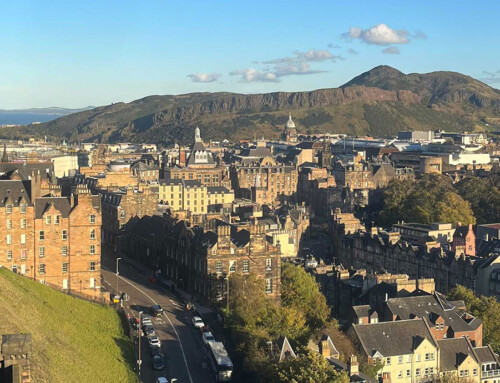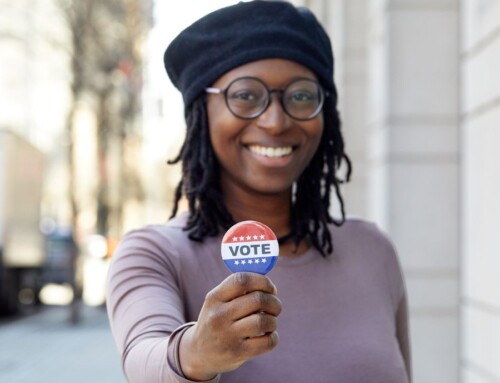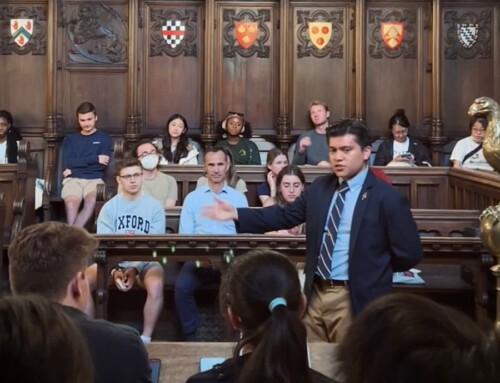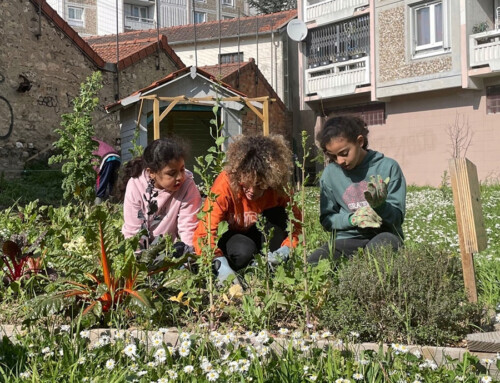by Marlen Bautista
from UC Berkeley to Paris, France, and Florence, Italy
As a first-year student, I had the opportunity to attend a conference in Hawaii. It was the first time I had ever left the mainland, and it was the best experience ever. I wanted more. As a student without US citizenship, it can feel like many doors are closed to you. I believed I couldn’t travel outside the US, so I started traveling to places like New York, Chicago, and Puerto Rico—wherever I could.
One day, I learned through the undocumented student program at UC Berkeley that I could study abroad. I immediately started dreaming about Paris. This is my study abroad story.
Discover what’s possible
I always thought that people only used advance parole to leave the country for humanitarian reasons or family emergencies. There are three reasons DACA holders can request advance parole: humanitarian, educational, or employment. Study abroad qualifies under the educational category.
When you’re a person without citizenship, you struggle with the idea of travel. Some undocumented people don’t even want to risk traveling to other states because they may be questioned.
Marlen Bautista
When I learned that studying abroad was possible, I knew I had to take advantage of it. I always felt restricted from doing many things because of my citizenship, and this was my chance.
Every DACA student needs immigration-specific legal counsel
In high school, I was invited to Japan and Cuba for a team project I had been working on. I remember I couldn’t go because I didn’t know about advance parole, and I didn’t have the support I have at UC Berkeley through the East Bay Community Law Center. I didn’t realize there was a process and documents that could make it possible.
I attended a webinar about study abroad for undocumented students hosted by UCEAP. I learned from one of the presenters, Christopher Relos, a staff attorney for the UC Immigrant Legal Services Center (UCIMM), about the importance of each student considering studying abroad to have an individual legal consultation.
Careful analysis of whether a student can safely return to the US from a trip abroad is highly individual. For anyone undocumented or a DACA recipient (or anyone else who is not a US citizen, for that matter), the best way to determine your own unique risks and options is to have a confidential consultation with an immigration attorney. Immigration legal support is available at each UC campus.
Christopher Relos, UCIMM staff attorney at UC Davis
Pro tip: Your campus law center or DACA advisors will have a checklist of the necessary paperwork. Get everything on that list before you submit for advance parole. The UCEAP staff can work with you to process your application to study abroad early, so you have the participation letter you need for the advance parole application.
The application process requires patience and flexibility
The paperwork to study abroad can be a lot. Add to that the letter of approval from the US consulate can leave you in limbo for a really long time. I started my application in June, and the US consulate was crazy booked, so it took a long time to get an appointment.
My application to study abroad got approved, but US Citizenship and Immigration Services (USCIS) didn’t get back to me until the day before my program was due to start! And they wanted more information. I remember feeling super crushed about it. I had to withdraw from the first program I selected, yet I was determined to make this happen.
Try 10 times before you give up because if I had let it go, I wouldn’t have studied abroad. I wouldn’t have the friends I met and the experiences that made it all worth it.
Marlen Bautista
When my summer program start date was coming up, and I still didn’t have advance parole, I contacted US Sen. Alex Padilla. I explained that the deadlines were coming soon, and I was about to miss my chance. The USCIS didn’t view my request for advance parole as an emergency, which is why it was taking so long.
Work hard and save money to spend abroad
When you have DACA, you don’t qualify for the Gilman scholarship, for example. It’s understandable but also unfortunate. The process to go abroad takes seven months or more, so I worked hard and saved money. I wanted to work because I knew it would be my only time in France, and I really wanted to be able to try everything.
I sacrificed a lot of free time and picked up a lot of extra shifts because I knew it would be worth the experience. I also earned a scholarship at Berkeley, which helped me pay for the plane ticket and program fees.
Marlen Bautista
Funding resources are available at your home campus study abroad office and the systemwide UC Undocumented Student Center. For example, California Dream Act applicants can receive full coverage for the USCIS filing fee costs.
As Marlen mentioned, the advance parole process can take many months, so you’re encouraged to start the planning process as early as possible. Ideally, that’s 9-10 months before your program start date. Contacting the UC Immigrant Legal Services Center at your home campus is the first step.
Glynis Kincaid, Study Abroad Program coordinator and advisor at UC Davis
Support networks for DACA students are available
The UC system supports undocumented students at each campus, so that’s the first place to start. The paralegals at the community law center were super helpful. They know the process is time-sensitive, and they were responsive to everything—I had fantastic support from them.
I found TikTok very useful. There are a bunch of immigration lawyers on TikTok, and I used them to guide the process of expediting my application if I wasn’t getting the answers I needed.
Marlen Bautista
Now that advance parole has been restored, more DACA recipients are applying for it and studying abroad. The growing community of returnees has a wealth of expertise to share with their peers, and you can connect with them by contacting your campus study abroad office.
You also have the support of the study abroad advisors, who are committed to removing barriers at the university level for DACA recipients interested in study abroad.
Glynis Kincaid, Study Abroad Program coordinator and advisor at UC Davis
Embrace the opportunity!
In the US, life as an undergrad is all work-school, work-school. I saw people order their coffee and sit down to enjoy it in Europe. In the US, I feel like we live to work, and people work to live in Europe.
In Europe, I noticed people were a lot fitter, and they were encouraged to walk to places. The public transportation was good too—fast and effective. Also, people in France will order a main dish and dessert and not feel guilty about eating.
Study abroad exposes you to how other people live. I think about the things I value now. I try to take things a little slower and not feel so overwhelmed all the time. It changed my life in so many ways. Now, I know I can do so many things that I used to think weren’t within reach.
Marlen Bautista
Learn everything you can while abroad
I didn’t know any words in French before I studied abroad, and I wanted to put myself in a place where I had to force myself to learn basic communication skills. On weekends, I would go to little French towns with my friends. Managing the transportation and ordering food in another language was really empowering.
Take what you learned forward
You may need an extra semester or summer to study abroad but remember this opportunity may not be available after graduation. I have a little sister, and growing up like me, she saw traveling as a luxury. Because I went to Paris, it seems more normalized and accessible to her.
I’m proud to have gone abroad. When I returned to the US, I went through Canada and was stopped at customs. Security saw that I had a Mexican passport and told me to show my green card. I don’t have a green card—just an information card and a letter! When I got my stamp, I was shaking as I ran to the airplane. I couldn’t believe that I had no US passport and was able to come back.
Marlen Bautista
I had to be persistent and have faith. I learned to be optimistic about my opportunities and to advocate for myself. It’s heartbreaking to hear that other people my age don’t believe it’s possible. It sounds too good to be true, but the process is there—it’s complicated, and it takes work, but it’s all worth it.














Leave A Comment